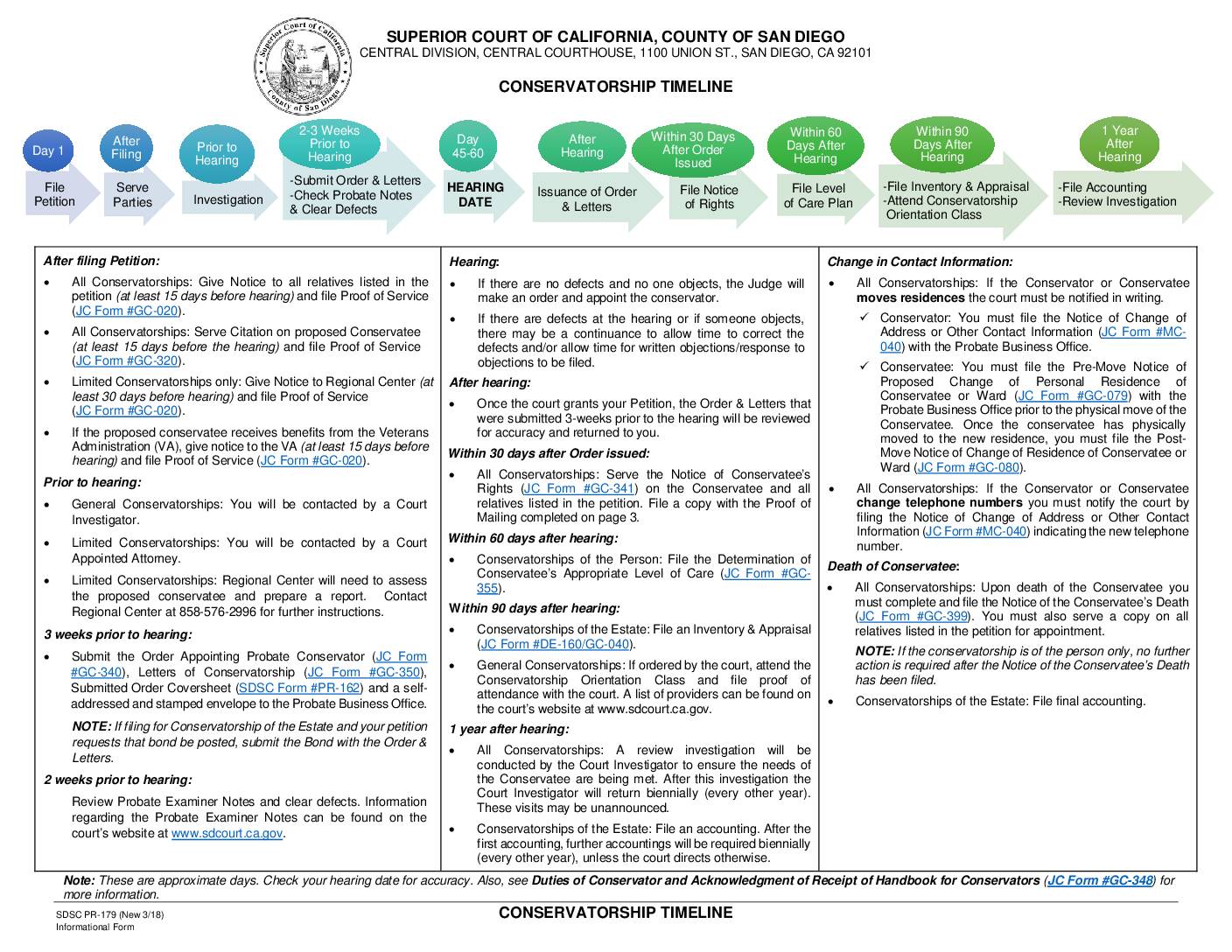Representing Yourself
People who represent themselves in court are called “pro per” or “pro se” litigants. When they file papers with the court, instead of identifying an attorney as their representative, they write that they are “pro per” or “pro se”. You do this in the space where the paper asks who the attorney is representing.
Individuals have the right to represent themselves in court. People do this for a variety of reasons. For all criminal matters – an individual has the right to be represented by an attorney. If a person cannot afford an attorney, the Court will appoint one. In non-criminal juvenile matters and in some other situations, the Court may appoint an attorney for a person. But, only if they cannot afford one. In civil, family law, and probate matters, people may represent themselves. The Court will not appoint an attorney for them. In small claims matters, individuals must represent themselves. Attorneys are not allowed to represent anyone in small claims except on appeal. Sometimes the court will recommend a person seek advice from or hire an attorney. Particularly if the case is more complicated or there are issues for which legal advice would be very helpful. However, the Court cannot recommend specific attorneys.
Representing Yourself – What Do I Need to Know to Represent Myself?
If you represent yourself in Court, you are expected to understand the law, rules and procedures that apply to your case. You will need to follow those rules getting your matter resolved, whether by settling with the other party, using an appropriate administrative process or going to trial.
You cannot come to Court and tell the judge that you are not a lawyer and do not understand what you are supposed to do. The judge cannot give you legal advice about your case. Nor can they make decisions based on your lack of legal knowledge or understanding. They must follow the law. They may suggest you speak with an attorney, but cannot recommend specific individuals or firms to you.
Each type of case has special rules and procedures that apply.
Representing Yourself – Finding Legal Assistance
The Resource Center provides a variety of legal resources that may be helpful as you work to resolve your legal matter.
Further, the California Courts Online Self-Help Center is a valuable resource that contains a large amount of information on a variety of common legal topics and processes. For example, the Online Self-Help Center contains information about small claims cases, custody and visitation, separations and divorces, name changes, and many other issues.
Representing Yourself – Is There Any Help I Can Get at Court?
Yes! The Superior Court has a Self-Help Services program, which includes the Self-Help Center and the Office of the Family Law Facilitator. For information on their locations, hours, basic services and workshops, review the court website for the county you wish to file in.
If you do not have an attorney, a Legal Document Assistant, Family Law Facilitator staff and volunteers can assist you. They help with procedural information and instruction on completing forms.
Representing Yourself – What Kinds of Help Courts Can Offer
They can:
- Explain general court rules, procedures and practices to help you understand the steps you need to take in your case to bring it to a resolution.
- Provide appropriate information from your court file.
- Make referrals to other legal aid and community resources that may be able to help you.
NOTE: They can only provide information and assistance with matters in California. If you have a case in another state, we cannot assist you with that case.
FAQs
Sometimes it is difficult to know where to start. Below are some brief answers to frequently asked questions.
What is a Civil Case?
Cases that don’t involve breaking the law where you can be punished by a serious fine or jail/prison time. This is criminal law. Civil cases are usually about disputes about a contract, damage to property, or someone being injured. They also involve special relationships, like families or dealing with someone’s property when they die. Common types of civil cases include:
- Family Law. These cases involve divorce, legal separation, nullity of a marriage, paternity actions, child support (often an action by the Department. of Child Support Services(DCSS)). As well as petitions for custody, visitation and support.
- Juvenile Cases: Cases about child abuse or neglect are called juvenile dependency cases. When a person under age 18 breaks the law, their matter may be a juvenile delinquency case.
- Small Claims: These are cases that are for $7,500.00 or less (for individual claims). The parties represent themselves in court – an attorney may not represent you except if there is an appeal. Only the defendant may appeal.
- Landlord/Tenant: Most commonly, these are “unlawful detainers” (evictions) – renting or leasing property, either to live in or for a business. The issues are about whether or not the tenant can stay on the property. Also, whether the tenant may owe the landlord for unpaid rent or damages.
- Probate: These are cases that deal with caring for people who cannot care for themselves, and the assets and debts of someone who has died. Common types of probate cases involve: Elder Abuse, Guardianships for children. Conservatorships for adults who cannot care for themselves or handle their financial and property affairs. This could also include dealing with the property (estate) of someone who has died.
In a court action, the people involved each have a title. This helps make clear each person’s role in the court.
- Plaintiff: This is the person who starts any civil action (law suit) and is making a claim that another person, business, institution, organization, agency, or other type of entity is responsible for causing them damage of some kind and should compensate them for the damage or take other steps to make them whole again.
- Defendant: This is the person or other entity that the plaintiff claims is responsible for their damages and is obligated to compensate them or otherwise take steps to make them whole again.
- Petitioner: In some types of cases, the issues are not about damage, but are about relationships and resolving matters in those relationships, or creating a way to care for someone who can’t help themselves. In these types of cases, the person asking the court to make decisions is actually “petitioning” the court. They want a decision or are asking the court to give them authority to take certain actions.
- Respondent: This is the person who also has an interest in the decision the court may make when the Petitioner files papers asking the court to take action. They are entitled to be notified that papers have been filed with the court asking for a decision or grant of authority. Additionally, to “respond” in order to protect any interest that they have in the matter. Or, to ask the court to take different action from what the Petitioner is seeking.
- Party: Each person or entity that is named in the papers that start a case is a Party to that action. Every party has a right to be notified of all the procedures that take place in the action. Also to respond or participate in each step of the action until its conclusion.



